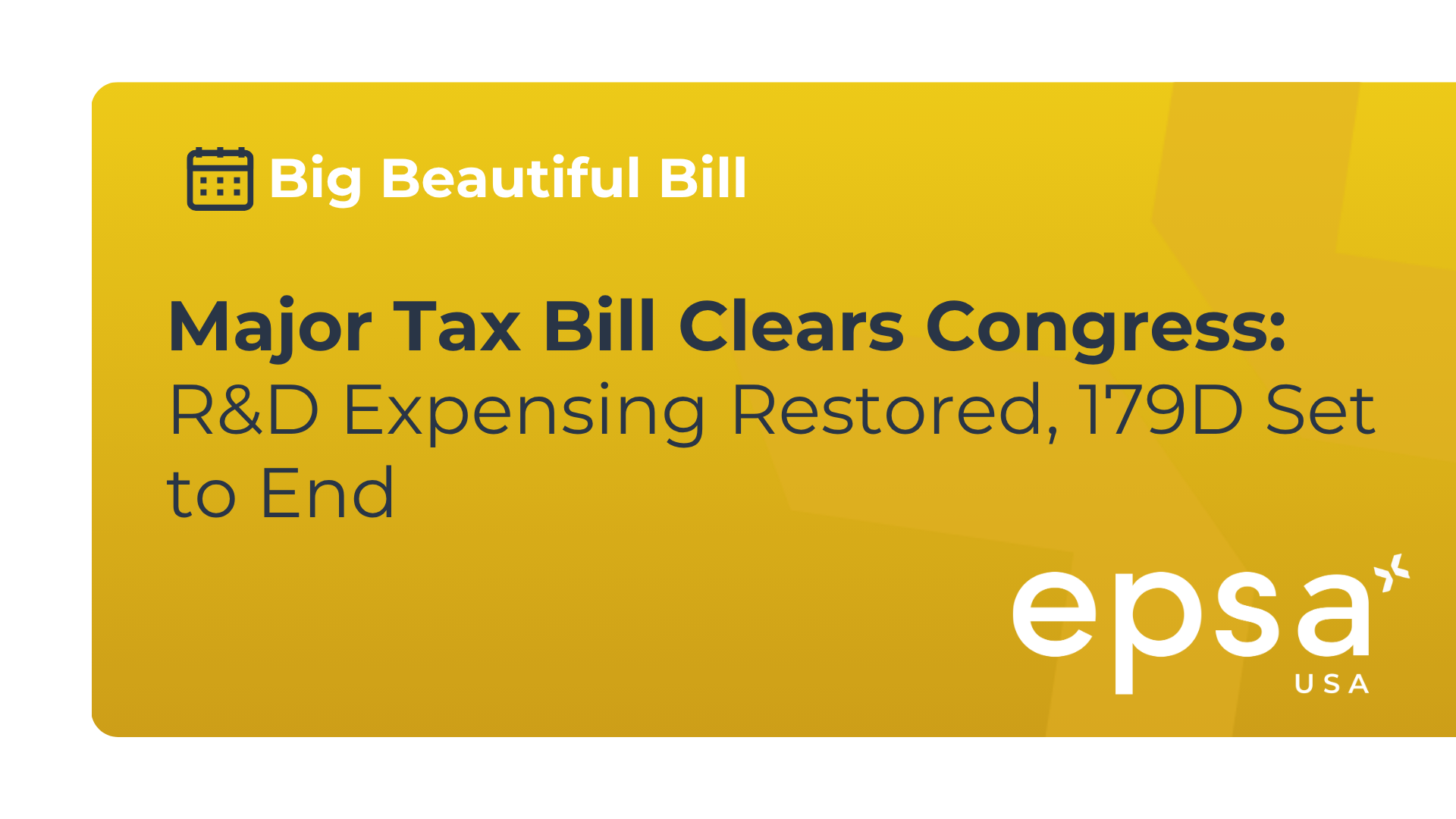Major Tax Bill Clears Congress: R&D Expensing Restored, 179D Set to End
Here’s What It Means for Your Business
Congress has officially passed the Tax Relief for American Families and Workers Act of 2024, widely referred to as the “Big Beautiful Bill.” The legislation brings long-awaited clarity and major changes to two key tax provisions—Section 174 and Section 179D—with real financial implications for innovative, growth-oriented businesses.
Section 174: R&D Expensing Restored
The bill reinstates full expensing for U.S.-based research and development (R&D) costs, reversing the mandatory amortization rules that went into effect in 2022.
Key highlights:
- Immediate expensing of R&D costs is now allowed once again for eligible businesses.
- The change is retroactive to the 2022 tax year for companies who meet the $31 million gross receipts test of section 448(c).
- This retroactivity opens the door for amended returns and potential refunds for past R&D expenses.
- Companies that amortized 174 expenses between 2022 and 2024 can also fully deduct the remaining unamortized expenses in 2025 (or between 2025 and 2026, if preferred)
- Going forward, the change provides enhanced cash flow and planning flexibility for companies investing in innovation.
Section 179D: Energy-Efficient Deduction Is Ending
In a significant shift, the bill also sets an expiration date on the 179D Commercial Building Energy Efficiency Deduction.
Here’s what’s changing:
- Projects must begin construction before June 30, 2026 to remain eligible for the deduction.
- Projects starting after this date will no longer qualify under the current 179D framework.
- Companies with energy-efficient building initiatives should evaluate timelines now to preserve eligibility.
What Businesses Should Do Next
These changes present both opportunities and urgency:
- You may be eligible for R&D tax refunds from previous years.
- There’s a limited window to capture 179D benefits before the deduction sunsets.
- It’s time to revisit project timelines, tax strategies, and capital plans in light of these updates.
How EPSA USA Can Help
At EPSA USA, we’re already working with clients across industries to:
- Identify eligible R&D costs for retroactive refund claims.
- Evaluate construction timelines for 179D-qualified projects.
- Strategically integrate these updates into tax and financial planning.
Have questions or want to assess the impact on your specific situation?
Contact us today to speak with a member of our team.
Share this article
